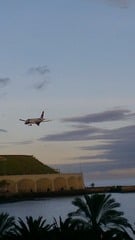 Holidaymakers and business travellers will be interested to know that very particular rules apply to accidents that occur on board aircraft. However, expert lawyers can be relied upon to rise to such challenges and, in one case, won a passenger six-figure compensation following a slipping accident.
Holidaymakers and business travellers will be interested to know that very particular rules apply to accidents that occur on board aircraft. However, expert lawyers can be relied upon to rise to such challenges and, in one case, won a passenger six-figure compensation following a slipping accident.
The elderly frequent flyer was disembarking from a jet at an Italian airport in freezing conditions when he slipped on the aircraft’s icy or snow-covered steps. He suffered injuries to his dominant right shoulder and right pelvis. As the incident happened on board an aircraft, the common law had no application to the case, which had to be decided under the Montreal Convention 1999.
The word ‘accident’, as used in the Convention, has been defined by judges as an unusual, unexpected or untoward event, external to the passenger, which does not result from the normal operation of the aircraft. In defending the passenger’s claim, the airline argued that the incident could not be so described.
In upholding the passenger’s case, however, the court found that the incident arose not merely from the inertia or inaction of the airline or the airport’s personnel but from a combination of acts and omissions. The steps had, unusually, been placed alongside the aircraft without a canopy to protect them from the elements. That, and the instruction to passengers to disembark, had involved positive decision-making.
Certainly from the passenger’s point of view, his fall was an unusual or unexpected event and it had not arisen from the normal operation of the aircraft or some immutable state of affairs. In the circumstances, the incident was an accident within the meaning of the Convention. The passenger was awarded £106,344 in damages, before interest.



